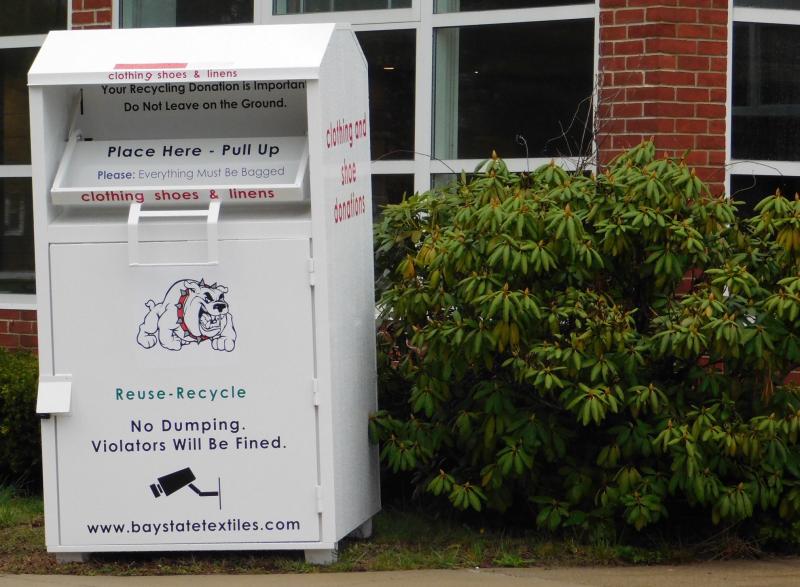Save the planet, save the school, clean your closet
Every year, 21 billion pounds of textiles are thrown away in the United States. Massachusetts landfills receive about 230,000 pounds of used textiles every year.
Holey socks, Batman.
Believe it or not, there’s a better use for those holey socks. Instead of sending them to the trash, tri-town residents can now recycle them.
As a matter of fact, they can recycle just about any textiles (excepting, ahem, used underwear), no matter what their condition. Broken belt? Throw it in the recycling bin. Bedroom slippers lost their fuzz? Let them be recycled. Stuffed animals, jeans, hats, potholders, duffle bags, totes, even placemats and curtains - all and more are accepted, no matter what condition they’re in.
The entire school district has pitched in to help. Textile recycling bins are available at every public school in the tri-town. They’re white and painted with the ORR bulldogs logo.
The textile recycling idea was put into place by parent Renee Pothier. She admitted that she never knew what to do with the clothes her children wore through, except throw them in the trash. “When I found this, it was wonderful,” she said.
While researching a local textile recycling option, she came upon Bay State Textiles - a company that collects worn textiles to recycle them in several different ways. The clothes are sorted by graders - lightly used and worn are often sold abroad to foreign countries. Absorbent materials that are no longer suitable for clothes are cut down into rags for ‘wipers’ and shipped to factories for use in wiping down equipment. The third grade, called absorbent materials, is recycled into filling for things like car seats, or even high-tech building material.
If recycling isn’t enough, any money raised is also donated to the new ORR Parent-Teacher-Student Organization (PTSO), which began this school year. Pothier explained that for every 1000 pounds of textiles that Bay State Recycling receives, the PTSO receives $100.
The PTSO is an organization which started this school year, when parent Theresa Fitzpatrick decided that teachers needed more options to fund their ideas. “I saw teachers paying for things out of their own pocket,” she said, citing a recent project on genealogy where all of the students had to share one MyAncestry login. “If we’d been able to buy more, it would’ve been more efficient for everyone,” Fitzpatrick explained.
The money raised from the collected textiles will help fund teachers’ requests, and also help to bring a community link into the schools. “We think it would be great to have people from the community come in to teach students,” Fitzpatrick explained. “We want to be that link.”
The white textile bins with the emblazoned bulldog are available at every public school in the Old Rochester district.















